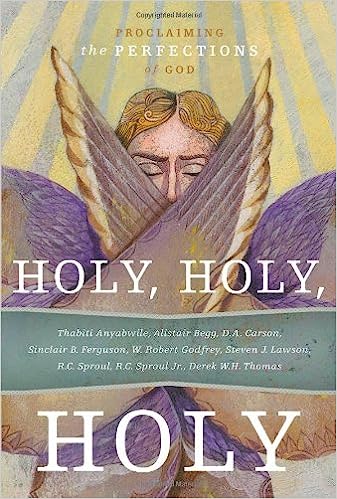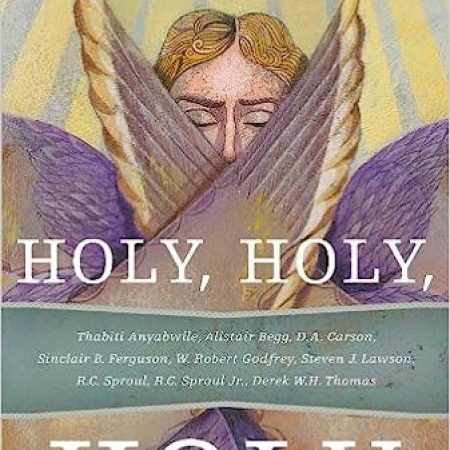
I have often seen publicity for a conference with a great line-up of speakers and been disappointed that there was no way I could attend. Well, now I can at least read the addresses that were given, as this is a compilation of those given at the 2009 Ligonier Conference, with contributions by Thabiti Anyabwile, Alistair Begg, Don Carson, Sinclair Ferguson, Robert Godfrey, Steven Lawson,R. C. Sproul, R. C. Sproul Jr., and Derek Thomas; some of the finest preacher-theologians the church is currently blessed with.
This excellent book does what all good, expository preaching should do – it teaches the mind, touches the heart and targets the will – and all in good measure. I guarantee that you will not fail to be enriched, humbled, edified and blessed by any one of the chapters in this book, never mind the totality.
In the first four chapters, Sproul (Sr), Begg, Ferguson and Lawson each address the otherness of God and the holiness of each of the persons of the Trinity. As you would expect given the original setting of these messages, all the contributors expound biblical passages and do so with a warmth and energy that has not been lost in any editing that has taken place. Of all the outstanding chapters in this book, Ferguson’s excels. He dares to contemplate the intimacy of the relationship between the Son and his ‘Holy Father’ (John 17:11).‘The holiness of love that flows between the Father and Son in the Spirit is infinitely greater than the most intense human devotion and holy passion. The blessed Son is able to gaze into the eyes of the holy heavenly Father and bear in His being, in the mystery of His eternal being, the intensity of the Father’s holy love for Him and desire for fellowship with Him so that “the deep things” of God with respect to each person are fully unveiled and enjoyed. That is the intensity of the Father’s desire to have fellowship with Him.’ (p22) ‘Why did He become flesh? Let the answer bring a sense of awe to our hearts: He became flesh to bring us into the same relationship to the holy Father that He experienced and enjoyed in the finitude and weakness of the flesh in which He was incarnated.’(p25)
Thabiti Anyabwile follows up with an exposition of Numbers 25, dealing with sin and the holiness of God. Here is as powerful and clear a study in the nature, horrors, and consequences of sin as you will find anywhere. Carson turns our attention to 1 Peter 2 to demonstrate how the church should, like her Head and Lord, also be holy while Robert Godfrey takes us to the cross to see afresh the holiness of God as demonstrated in the death of the Son. Godfrey recalls a line from one of his seminary tutors, ‘This is the essence of American religion – I like sinning and God likes forgiving, and the world is well put together’ and shows how God’s view of sin is so much more serious than ours tends to be.
Derek Thomas rightly points out that, ‘It is one thing to talk about the holiness of God; it is another thing to desire holiness for ourselves’. Stressing the necessity of personal sanctification he outlines three motivations for holiness from 1 Peter 1: God’s holiness, the gospel, and our membership of the family of God.
R C Sproul Jr allows us to be a fly on the wall as he shares how he leads family worship. It’s a precious insight into a godly family routine and one we could learn many lessons from but I am still not really sure of its connection with the theme of the book, other than the chapter’s title, Walking together with a Holy God. Sproul Sr rounds off the studies with a characteristically forthright and passionate sermon on holiness, wrath and justice.
Here is biblical and pastoral theology all combined in a feast that will nourish your soul and I simply cannot speak too highly of it.
Ligonier Ministries (1 Jan. 2010)
